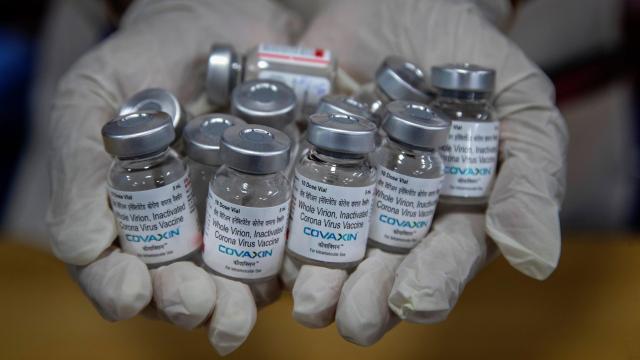Covid-19 booster vaccines could eventually be needed for everyone, though some faster than others — at least, those are the apparent expectations coming from the World Health Organisation. On Thursday, Reuters reported on WHO internal documents laying out their scenarios for the near future of the pandemic, including one that predicts most people may need boosters two years after their last dose. More vulnerable groups like the elderly may need them in one year after their last dose.
According to Reuters, the forecasts were set to be discussed during a board meeting held Thursday by Gavi, an organisation and public–private partnership formed in 2000 by the WHO and other parties, including the Bill & Melinda Gates Foundation, that’s been focused on providing vaccines to poorer countries in the world. During the pandemic, Gavi, the WHO, and the Coalition for Epidemic Preparedness Innovations (CEPI) have been responsible for the COVAX program, an initiative meant to supply much of the developing world’s covid-19 vaccine doses.
Under the baseline scenario, Reuters reported, the WHO predicts that the general public will need boosters in the next two years to keep up with evolving variants of the coronavirus. For people with weaker immune systems on average, like the elderly, this need may come within a year instead.
The WHO didn’t respond to a request for comment from Reuters regarding the alleged forecasts. But a spokesperson for Gavi told the outlet that the COVAX program was planning to take a wide range of scenarios into consideration.
Indeed, there’s a lot up in the air when it comes to predicting the course of immunity from covid-19. Some experts with the U.S. government and vaccine makers have said that boosters could be needed in as little as a year. Yet other studies have suggested that even natural immunity remains robust in people 11 months and longer, while ongoing clinical trial data from Pfizer has indicated that people remain immune at least six months after their final dose. Reinfections and breakthrough infections among the fully vaccinated continue to appear very rare as well.
Of course, as the coronavirus continues to evolve, there may eventually be variants capable of substantially evading the immunity provided by today’s vaccines or past infection. The immune system is a complicated machine, though, and there are many working parts to it that determine how we respond to a familiar germ. A hypothetical variant may someday be able to cause illness in over 50 per cent of the vaccinated, for instance, but our immune system might still be trained enough to prevent most of us from ever getting seriously ill.
Some people are definitely more likely to benefit from boosters than others, though. On Wednesday, a study found that organ transplant recipients developed signs of stronger immunity, including covid-specific antibodies, following a third booster dose. That same day, experts assembled by the Centres for Disease Control and Prevention concluded that there wasn’t enough evidence to support recommending boosters for the general population right now, but did agree that certain groups, including elderly people or transplant recipients, may need them. They also didn’t close the door on one day recommending them for everyone else.
Still, the most pressing covid-related problem facing the world isn’t about vaccine boosters, but about getting the first doses to everyone as fast as possible. The COVAX program isn’t expected to come anywhere close to distributing its 2021 goal of 2 billion vaccine doses. And while there have been important recent successes in developing additional vaccine candidates, there have also been failures throughout the pandemic in providing vaccines to the world.
As early as October 2019, for instance, most of the world had been calling for patent rights to be temporarily waived so that vaccine production could be sped up — a request that the US and other powerful parties, including the Gates Foundation, fought back against. (As of May 2021, the US is now supporting these waivers, but it’s still not certain whether it will happen.)
Currently, only 17% of the world’s population is partially vaccinated, and it may take until 2022 or longer for a majority of the globe to get their shots.
